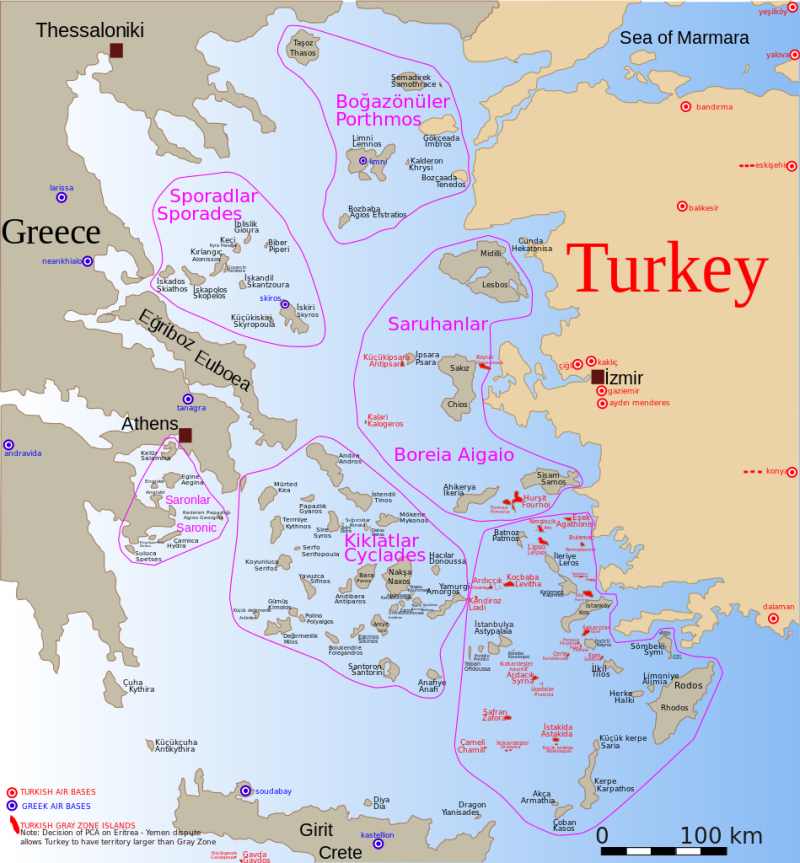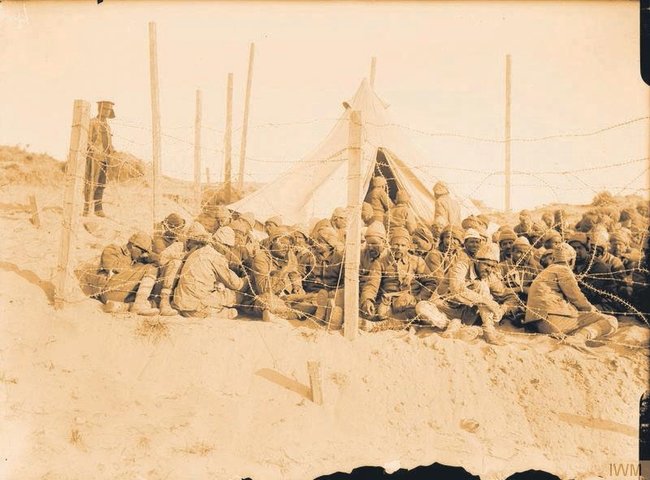recounts his arrest by the Greeks and imprisonment in
Izmir, Athens and on Crete.//
In 1920, Afyon was "officially" in the Italian sector of a
carved-up Turkey, thanks to the Mondros Agreement of
1918 that ended World War I for the Ottomans. In fact,
the Greek army moved into Anatolia a bit beyond
Afyonkarahisar until pushed back to Izmir from there in
1922.
The Statement of a Lawyer
Herewith the statement of lawyer Ahmed Efendi, son of Hasan
Efendi,
resident in Hacı Eyüb quarter of (Afyon)Karahisar, who was banished
to Greece
from Karahisar by the Greeks although he was guiltless:
Date 7 June 1923
Question: What kinds of mistreatment and torture did you
experience
while in captivity in Greece?
What was the reason for your banishment?
Where did you stay in Greece?
What kind of treatment did other
prisoners experience and what sort of
cruelties did you witness and do ?
Answer: Without uttering a word, the Greeks took me from my
home in
Karahisar and transported me to Izmir.
There they read some documents
that asserted that I was in Karahisar to
spy for the Kemal Government
and that I had arranged the order for the
execution of lawyer Hulusi,
the governor, by informing on him to the Turkish
Government that came
after the first occupation. Despite the fact that I asserted that this
was all
fiction and the wild imaginings of the governor and the mayor,
supported
with statements made by their men,I was ignored and my assertions
dismissed.
They sent me to the police
station at Maltiz Çarşı, where I was put into a
room for a week without food or
water, spending my time in a chair
because there was no bed. After a week, I was sent to Piraeus and from
there to the Lucia prison camp in Athens.
I was put in one of the tents
that housed other of our brother
prisoners, with no blanket or bed.

During the year I spent there they gave us no clothes or underwear. We
had only our per diem money to buy bread
and beans but to get these we
had to wait on a meals line where a Greek soldier
constantly harassed us
and even beat us.
Since what they gave us couldn’t be considered food,
we became weaker
each day. In fact, some of our fellows
who were
beaten by this soldier died from the blows.
We registered a complaint with the ambassador
of Holland, which
watched over Turkish affairs in Athens. A superficial investigation was
used to pass
over the incident. We lay in our tents
filled with rain water.
Subsequently,
when money began to come to us from our hometowns we
were better able to
manage. But the Greek soldiers and
officers took
every pretext to steal our money.
One time when we asked for leave to
go into Athens we had to give the sergeant
25 drachmas. And we had to
give each of
the soldiers who accompanied us 5 francs or drachmas, a
package of cigarettes
and treat them to a meal at a restaurant.
So
prisoners who didn’t have any money were unable to take leave.

We saw that the military prisoners we
subjected to all kinds of torture and
forced labor to break them down. Although we appealed to those in a
position
to stop this horrific treatment this effort
boar no fruit. In the end,
we
were shipped to Kandia on Crete, where the harsh treatment and
injustices
inflicted on Moslems were too many to count.
Some Moslems,
who were rescued from villages around Kandia where no
Moslems
remained because of the cruelties and massacres committed by the Greeks
and the Greek migrants, were transported to Kandia and stuffed willy-nilly
into
the homes in the Moslem community there.
The bread we got in
Kandia was filled with stones and inedible. In fact, I took a couple to
Izmir and showed
them to the Red Crescent delegation there.
In short, because the cruelties the Greek government saw fit to inflict
on
Moslem prisoners were so numerous, I must be satisfied with what I have
said.
Date: 1 June 1923
Lawyer Ahmed, son of Hashuli
//END of PART XVII//

Hiç yorum yok:
Yorum Gönder